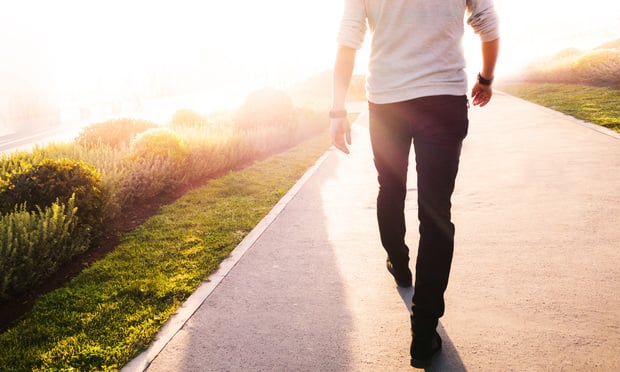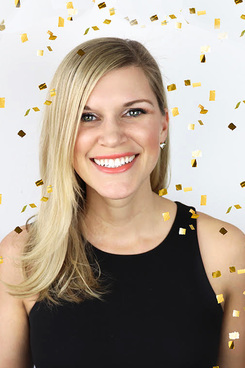Q&A: Recognizing Stress, Hitting Pause and Other Wellness Lessons Amid COVID-19
A consultant who works with Big Law attorneys says lawyers often share two traits—pessimism and perfectionism—that can make anxieties worse.
May 15, 2020 at 04:51 PM
6 minute read
 Photo: Shuterstock
Photo: Shuterstock
Remote working, social isolation, financial fears and general anxiety about COVID-19 have combined into a towering cloud of stress for many attorneys. But that doesn't mean lawyers can't use the current moment to make lasting changes that can benefit their mental and physical well-being.
That's according to Jennie Fagen Malloy, an executive coach and wellness consultant in New York who has carved out a niche working with lawyers—with a client list that's included Akin Gump Strauss Hauer & Feld, Allen & Overy, Kasowitz Benson Torres, Katten Muchin Rosenman, McDermott Will & Emery and Vedder Price.
After eight years of workshops and one-on-one coaching sessions, Malloy and her consultancy, Lights Camera Kale, are well versed in the normal obstacles attorneys face in keeping mentally and physically healthy. The coronavirus pandemic has created new problems, she says, but it also presents an opportunity for lawyers to think differently about their well-being.
The conversation below was lightly edited for clarity and length.
 Jennie Fagen Malloy (courtesy photo)
Jennie Fagen Malloy (courtesy photo)What differences are you seeing in your work with lawyers during the pandemic?
Since mid-March the main difference is that I have been asked to do COVID-19-specific trainings, particularly about working from home. Everything is COVID-19-related. Workshops on managing stress while working from home, setting boundaries and work/life balance and well-being are the prime topics.
What I am hearing is that because of the lack of a commute, people have more time to focus on self-care, but also have to live with our thoughts in the same space. This can be frustrating for people, not having variety in their day. A lot of the attorneys I work with live in large cities … even just going out for lunch, you can walk outside, make choices … and there is this idea that we can't make as many choices now.
You have worked with such clients as LinkedIn, ZARA and PayPal, as well as several law firms. Do you see general differences between the lawyers and other professionals?
There are two common traits I find among lawyers: pessimism and perfectionism. During a workshop, I always ask the room who lives in the past and who tends to play out more future-oriented scenarios. When I go into a tech startup or a Fortune 500 company, it's usually split. With lawyers, it's almost always the future. And that can make them more prone to anxiety. But anxiety makes them work hard. It allows them to anticipate worst-case scenarios and makes them good at their jobs. But when do you move from productive anxiety to crossing that line into too much anxiety, which is disruptive?
I like to reframe "stressed," which can sound negative, to "moving too fast." This is more empowering. People can take ownership of "moving too fast." Examples of the physical manifestations of this can be a sore or tense neck, stiff jaw, digestion issues, headaches and trouble sleeping.
What can people do to combat some of this?
Part of it is acknowledging when you are stressed. Once you acknowledge that, you can address it and slow down. Give your brain a chance to organize. As far as mechanisms go, we can trick our brain into thinking we are relaxed as the body and mind work on a feedback loop. Fight or flight, for example. If I were to observe that my heart rate is increased and I adopt a slower breathing pattern, I can trick my brain into thinking I am relaxed. This is why meditation and breathing can be very impactful.
Sometimes when we are caught in our heads, the worst thing we can do is think our way out of negative thoughts. For lawyers, as smart, motivated people who are thinking all day long, it seems to be the default to try and think our way out of the rabbit hole. Job security, COVID-19, the news—they are all triggers.
One of the best things you can do is move your body. That can be a workout, dancing in your living room, walking around your block. It could be something as simple as holding a plank. Moving your body is a great way to be present, and studies have shown that people are much happier in the present than they are thinking about the past or the future.
If you have a kid and it is the middle of the workday, you need to think of your child or your spouse as your co-workers. We have conversations throughout the day with our co-workers, and if we view them like that, we can take those little breaks that give ourselves more motivation and more energy to move forward with our work.
Do you have any suggestions on how firms, even ones that are actively pursuing health and wellness measures, can step up during COVID-19 and beyond?
I see a ton of firms initiating meditation programs, once a week or once every other week. I like to complement this with a workshop about stress. I would say that is something common.
It is important for people to reflect on what is working well right now and how they can translate that into their daily lives once the pandemic eases. If you enjoyed going for a 10-minute walk at lunchtime each day while working remotely, how can you implement that once you get back into the office? If you enjoy closing your email or turning your phone off for an hour each day, what needs to be in place to communicate that to your office mates and figuring out how that is going to translate moving forward?
Any final advice for attorneys on wellness matters?
A lot of attorneys, more so than other professions, tend to be introverts. A lot of work in law is sitting by yourself and doing reading and research. When introverted, it can be easy to isolate yourself even further given this environment. It is good to note that social isolation is linked to depression and anxiety, and that can impact productivity and happiness. Be proactive about reaching out to others. We are hardwired to need other people.
Read More
Amid the Pandemic, Reed Smith and Other Firms Are Sticking With Their Mental Health Programs
Boosting At-Home Workouts When 'Just Add More Weight, Brah' Isn't an Option
Law Firms Want to Improve Mental Health, but They're 'Failing to Take Preventative Action'
This content has been archived. It is available through our partners, LexisNexis® and Bloomberg Law.
To view this content, please continue to their sites.
Not a Lexis Subscriber?
Subscribe Now
Not a Bloomberg Law Subscriber?
Subscribe Now
NOT FOR REPRINT
© 2025 ALM Global, LLC, All Rights Reserved. Request academic re-use from www.copyright.com. All other uses, submit a request to [email protected]. For more information visit Asset & Logo Licensing.
You Might Like
View All
KPMG's Bid to Practice Law in U.S. on Indefinite Hold, as Arizona Justices Exercise Caution

Orrick Hires Longtime Weil Partner as New Head of Antitrust Litigation


Sidley Adds Ex-DOJ Criminal Division Deputy Leader, Paul Hastings Adds REIT Partner, in Latest DC Hiring
3 minute readLaw Firms Mentioned
Trending Stories
- 1Gunderson Dettmer Opens Atlanta Office With 3 Partners From Morris Manning
- 2Decision of the Day: Court Holds Accident with Post Driver Was 'Bizarre Occurrence,' Dismisses Action Brought Under Labor Law §240
- 3Judge Recommends Disbarment for Attorney Who Plotted to Hack Judge's Email, Phone
- 4Two Wilkinson Stekloff Associates Among Victims of DC Plane Crash
- 5Two More Victims Alleged in New Sean Combs Sex Trafficking Indictment
Who Got The Work
J. Brugh Lower of Gibbons has entered an appearance for industrial equipment supplier Devco Corporation in a pending trademark infringement lawsuit. The suit, accusing the defendant of selling knock-off Graco products, was filed Dec. 18 in New Jersey District Court by Rivkin Radler on behalf of Graco Inc. and Graco Minnesota. The case, assigned to U.S. District Judge Zahid N. Quraishi, is 3:24-cv-11294, Graco Inc. et al v. Devco Corporation.
Who Got The Work
Rebecca Maller-Stein and Kent A. Yalowitz of Arnold & Porter Kaye Scholer have entered their appearances for Hanaco Venture Capital and its executives, Lior Prosor and David Frankel, in a pending securities lawsuit. The action, filed on Dec. 24 in New York Southern District Court by Zell, Aron & Co. on behalf of Goldeneye Advisors, accuses the defendants of negligently and fraudulently managing the plaintiff's $1 million investment. The case, assigned to U.S. District Judge Vernon S. Broderick, is 1:24-cv-09918, Goldeneye Advisors, LLC v. Hanaco Venture Capital, Ltd. et al.
Who Got The Work
Attorneys from A&O Shearman has stepped in as defense counsel for Toronto-Dominion Bank and other defendants in a pending securities class action. The suit, filed Dec. 11 in New York Southern District Court by Bleichmar Fonti & Auld, accuses the defendants of concealing the bank's 'pervasive' deficiencies in regards to its compliance with the Bank Secrecy Act and the quality of its anti-money laundering controls. The case, assigned to U.S. District Judge Arun Subramanian, is 1:24-cv-09445, Gonzalez v. The Toronto-Dominion Bank et al.
Who Got The Work
Crown Castle International, a Pennsylvania company providing shared communications infrastructure, has turned to Luke D. Wolf of Gordon Rees Scully Mansukhani to fend off a pending breach-of-contract lawsuit. The court action, filed Nov. 25 in Michigan Eastern District Court by Hooper Hathaway PC on behalf of The Town Residences LLC, accuses Crown Castle of failing to transfer approximately $30,000 in utility payments from T-Mobile in breach of a roof-top lease and assignment agreement. The case, assigned to U.S. District Judge Susan K. Declercq, is 2:24-cv-13131, The Town Residences LLC v. T-Mobile US, Inc. et al.
Who Got The Work
Wilfred P. Coronato and Daniel M. Schwartz of McCarter & English have stepped in as defense counsel to Electrolux Home Products Inc. in a pending product liability lawsuit. The court action, filed Nov. 26 in New York Eastern District Court by Poulos Lopiccolo PC and Nagel Rice LLP on behalf of David Stern, alleges that the defendant's refrigerators’ drawers and shelving repeatedly break and fall apart within months after purchase. The case, assigned to U.S. District Judge Joan M. Azrack, is 2:24-cv-08204, Stern v. Electrolux Home Products, Inc.
Featured Firms
Law Offices of Gary Martin Hays & Associates, P.C.
(470) 294-1674
Law Offices of Mark E. Salomone
(857) 444-6468
Smith & Hassler
(713) 739-1250










